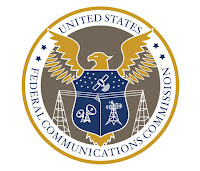Free State Foundation President Randolph May and Director of Communications Policy Studies Seth Cooper submitted the attached written ex parte presentation to the FCC emphasizing the importance of the agency following Congress’s directive to account for “technical and economic feasibility” in considering alleged complaints of digital discrimination. Below are two paragraphs excerpted from the beginning of the ex parte submission:
In Section 60506(a) of the Infrastructure Investment and Jobs Act of 2021, Congress expressly stated that, in implementing the Commission's mandate to take steps to ensure that all Americans benefit from equal access, the agency must consider issues of “technical and economic feasibility.” Congress thereby dictated that broadband providers must remain free to make informed business judgments regarding matters such as the size of their investments in relation to the availability and cost of capital, the geographic reach of planned deployments by the provider and competitors, the cost of the underlying technologies employed considered for deployment, the timing of new deployments, and other similar considerations. They are all market-related factors affecting economic feasibility assessments.
The congressional requirement that economic feasibility factors be taken into account requires acknowledgement by the Commission that deployment and non-deployment decisions of broadband providers to certain locations routinely, and necessarily, involve business judgements that have absolutely nothing to do with invidious discrimination. When confronted with a complaint alleging discrimination, in addition to the above considerations, “economic feasibility” is properly informed by factors such as: (1) whether a grant-making entity (say, in the BEAD context) delineates the deployment areas that are being subsidized; (2) whether the area subject to question is receiving, or is slated to receive, federal or state subsidized build-outs; (3) whether another provider is already providing service, or is slated to offer service, at comparable speeds and with comparable quality of service metrics; (4) regulatory or procedural requirements that increase costs prohibitively; and (5) whether the provider does not provide service in the complainant’s area using the technology the complainant prefers. As explained in FSF’s comments and reply comments, when broadband providers make deployment decisions based on economic feasibility reasons such as those above, the Act forbids the Commission from treating those decisions as wrongful.


















